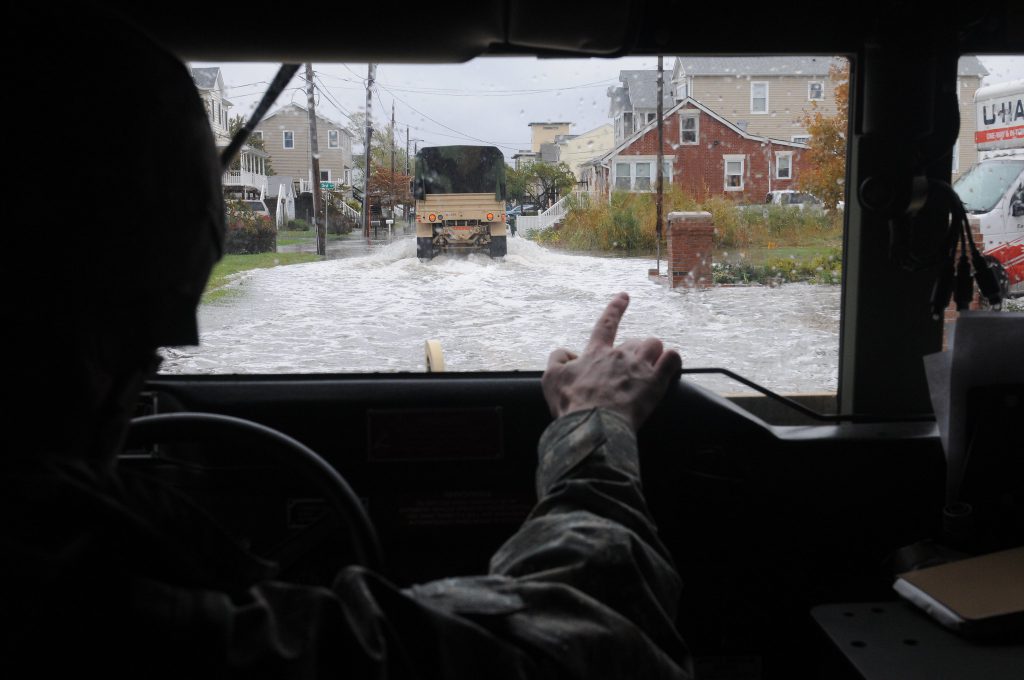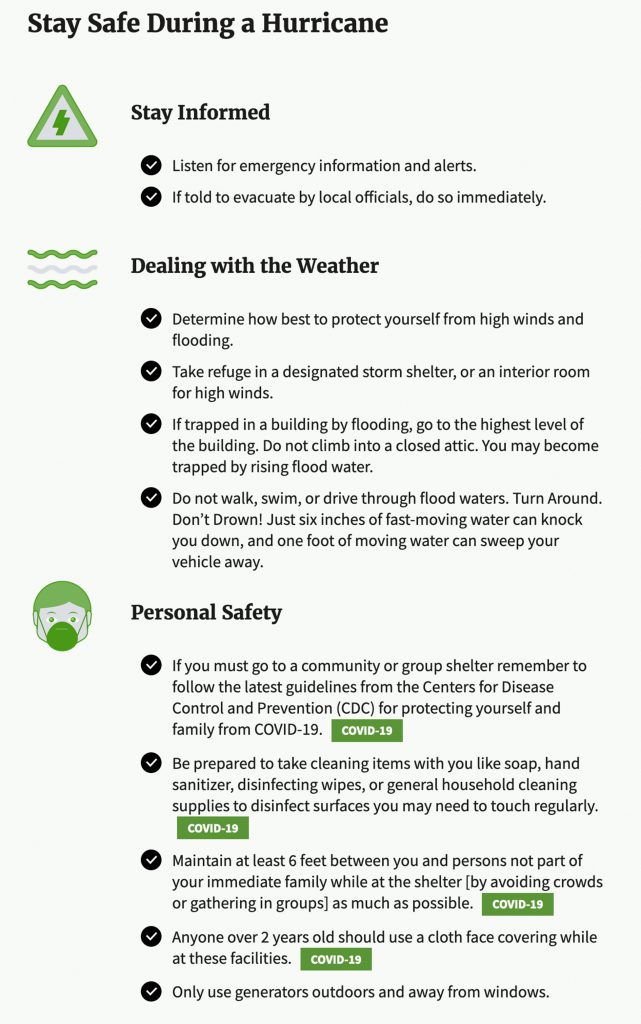Maryland Guard prepares for hurricane season
[vc_row][vc_column][vc_column_text]Article By 1st Lt. Jennifer Alston, Maryland National Guard Public Affairs Office[/vc_column_text][vc_column_text]
While the Maryland National Guard has been engaging in COVID-19 pandemic response, a new threat looms on the horizon with the commencement of hurricane season the first of June. The National Oceanic and Atmospheric Administration’s outlook suggest most of the Atlantic Basin will be warmer than average, leading to an unusually active hurricane season. This could possibly mean that the MDNG could not only be responding to emergencies in Maryland but also surrounding states such as last year’s Hurricane Dorian in North Carolina.
The Maryland National Guard works hand in hand with local and state partners in times of crisis. Since activation by Gov. Larry Hogan in early March, the MDNG’s response to the pandemic demonstrated a quick and leveled mission to assist state and local agencies in establishing stability to continue functioning. The MDNG assisted in a range of missions such as food distributions with community partners, providing medical support teams and supplies throughout the state, cybersecurity, and manning the Strategic National Stockpile warehouse.
“Partnerships are key,” said Col. Andrew Goldin, joint staff plans chief for the MDNG. “That’s why it’s especially important to work with our state partners so that they can take over the work we have been doing.”
As the response to the pandemic comes to an end for MDNG, there will still be opportunities for partnerships to continue as preparations for potential hurricane emergency responses are underway. In the event a natural disaster exceeds a state’s capability to respond or a specialized team or piece of equipment is needed, states can request and move much needed aid and assets through the Emergency Management Assistance Compact. An EMAC is a mutual aid system that allows Guard elements in one state to support response operations in another.

“We sent a Helicopter Aquatic Rescue Team to North Carolina last year which was a good exercise in the EMAC concept and validated the agreement we made at the All Hazards Workshop that year,” said Goldin. “We can provide and receive aid if we really need it.”
The All Hazards Workshop is where representatives of the 54 states and territories gather to review contingency plans for responses to emergencies and natural disasters such as hurricanes, snowstorms, and now pandemics.
“The guard is the go-to force for hurricane responses because we have the statutory authority under state active duty and capabilities our state partners might need to mount an effective response,” added Goldin. “We’re trained and ready to do any mission. We got a bunch of capable and competent people who are happy to come out and help their neighbors.”[/vc_column_text][/vc_column][/vc_row]
